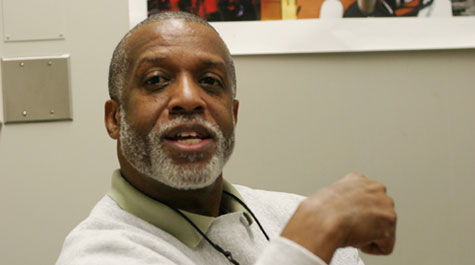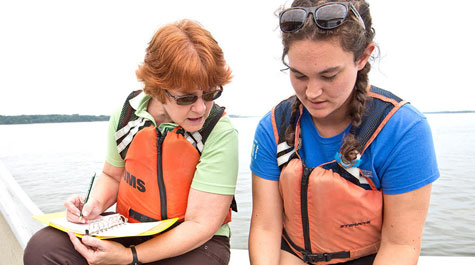W&M faculty in the media this month
Following are selected examples of William & Mary faculty and staff members in the media. - Ed.
Experts say Oklahoma bill likely unconstitutional
In an May 20 USA Today article, Neal Devins, Director, of the Institute of Bill of Rights Law and professor of government at William & Mary, discussed the legality of criminalizing abortion.
The article states that since Roe v. Wade, state legislatures from around the country have tried to test the legal limits of the Supreme Court’s ruling. This includes the state of Oklahoma.
Devins believes that this bill will hurt women seeking abortions.
“By denying women access to doctors,” Devins said, “the measure would impose an '"undue burden"' on those seeking abortions.”
In 1992, the Supreme Court ruled in Planned Parenthood v. Casey that restrictions cannot impose such a burden.
In addition, experts citing the Constitution, say that states cannot ban abortion prior to viability, and, if presented in court, the state would lose its argument.
2010 food poisoning cases linked to Asian bacteria in raw oysters
In a May 18 Chesapeake Bay Journal article, Kimberly Reece, chair and professor of marine science at W&M’s Virginia Institute of Marine Science (VIMS), discussed the link between bacteria in raw oysters to cases of food poisoning.
According to the Journal, instances of food poisoning in the city of Baltimore puzzled public health officials in 2010. Research was conducted with the help of the U.S. Food and Drug Administration (FDA), and it was determined that Vibrio bacteria was established to be in the aquatic life of the Chesapeake.
Vibrio is located in warm coastal areas, such as the Gulf of Mexico. The bacteria are found in higher concentrations in the summer months when water gets warmer.
After improvement in scientific technology, it was verified that the shellfish in question contained a strain more commonly found in Asian waters, most recently in Hong Kong. Experts believe that the organism could have been brought to the Chesapeake Bay via the ballasts of oceangoing cargo ships. However, there are laws in places that forbid the discharge of ballast tanks in American ports unless they have already done so at sea prior to arriving.
Reece did not entirely agree with the Maryland health department and FDA assessments because VIMS had already been doing research several years on a similar species of oysters before the outbreak 2010 in the Chesapeake.
“It’s extremely unlikely,” said Reece. “Oysters used in the VIMS research were all spawned in the United States under very strict protocols devised to avoid any unintentional release of nonnative pathogens or parasites. It’s also probable that the Asian Vibrio strain may have been introduced into the Bay by some ‘rogue introduction’ of oysters from that continent but I haven’t heard of any.”
A history of insurgent candidates' impact on down-ballot races
In a May 13 Governing article, Ronald B. Rapoport, John Marshall Professor of Government at William & Mary talked about how ‘''outsider''’ candidates make impressions on voters.
According to the article, presidential-hopeful Donald Trump said he had no intention of showing up for the West Virginia primary because he had effectively won the Republican nomination after the win in Indiana. Shortly thereafter, he did reversed his position via Tweeter by saying “Thank you West Virginia. Let's keep it going. Go out and vote on Tuesday -- we will win big. #Trump2016."
Will this keep Trump from building political connections with Republican state and local officials that are looking to use some of his momentum to their gain respective offices?
Rapoport had this to say:
“The Trump phenomenon is ‘all about Trump. So it's not surprising that he hasn't recruited candidates.”
How Hampton Roads businesses can better recruit millennials
In a May 2 article in The Daily Press, W&M Floyd Dewey Gottwald, Sr. Professor of Business Administration Ronald R. Sims discussed how the businesses of the Hampton Roads region could hire millennials.
According to the Daily Press, a millennial is a person that was born between the years 1980 and 1997, and by 2020 they will be the majority of the nation’s workforce.
Sims, who advises local companies on hiring practices, had this to say:
“When it comes to millennials, their expectations are much higher in terms of ‘What is the organization going to be able to do for me?’”
In addition, Sims stated that employers should follow a few tips.
“Invest in your online presence and understand that money isn’t the only factor why millennials want to work for you,” said Sims. “Be sure to engage them in your decisions, and if you want to attract millennials...hire millennials because they want to work, live and play with people their own age.”


















